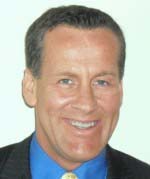
Burt Williamson
By Burt Williamson
The Department of Labor rule that Jim Wisdom addressed in the July 8-14, 2016 issue of the Pacific Coast Business Times is an attempt by the government to weed out unscrupulous sales people who are only looking to make a commission without concern to the long-term impact on the consumer. That would be a very good thing.
Watered down legislation: The DOL rule is an attempt to regulate greed, which is why the details are far from final. Unfortunately, there are special interests doing all they can to water down and delay the enactment of the legislation, so things probably won’t turn out the way Mr. Wisdom laid out.
Standard today: Most people don’t realize that there is a difference between a person acting as a fiduciary (who always is supposed to do what is right for investors) and a broker or agent (who only needs to make a “suitable” recommendation). Commissions on suitable recommendations frequently are not disclosed as there are no requirements to do so, and the commissions may be significant. This makes the word suitable an inappropriate word based on the context.
Additional disclosure for recommendations: Adding more disclosures and accountability simply adds more loopholes for unscrupulous sales people to find and circumvent, while adding more paperwork to the mounds already required for the honest adviser, who is already over-burdened.
Preferred lists: Employees of some insurance companies, brokerage firms and banks may have quotas to meet in the sale of various products and on a quarterly basis. Their firms also may have signed agreements to receive more favorable pricing, higher commissions and overrides from specific insurance and investment management companies. Those are the preferred lists.
If an adviser with a designation that subscribes to a fiduciary standard works for one of these firms, the standard set by their designation may not take precedent over the firm’s requirements.
Caveat Emptor: This is an investor’s best defense. Clearly, there is much more involved to putting the investor’s interests first. There needs to be a major shift in the industry. Until that time, a savvy investor would be wise to ask his or her current or prospective advisor:
• What is your process for making investment recommendations?
• Are you making any recommendations off of a preferred list?
• Do you have any quotas to meet?
• Please show me with third party software (such as Morningstar) how much I might pay each year for hidden fees, trading costs, and rider fees?
• How often do we meet or talk on the phone to review my situation?
• Are there restrictions or limitations to how much of my money I can access?
• Have you or your firm had any regulatory issues for any securities or insurance sales at any time?
Complete disclosure and more investment choices provided by an adviser may require less government intervention and paperwork as well as enabling better advice and service overall. At the end of the day, every investor should be treated as fairly as possible, not just as fairly as the rules require.
• Burt Williamson is a certified financial planner and registered investment adviser in Oxnard.






 Print
Print Email
Email















